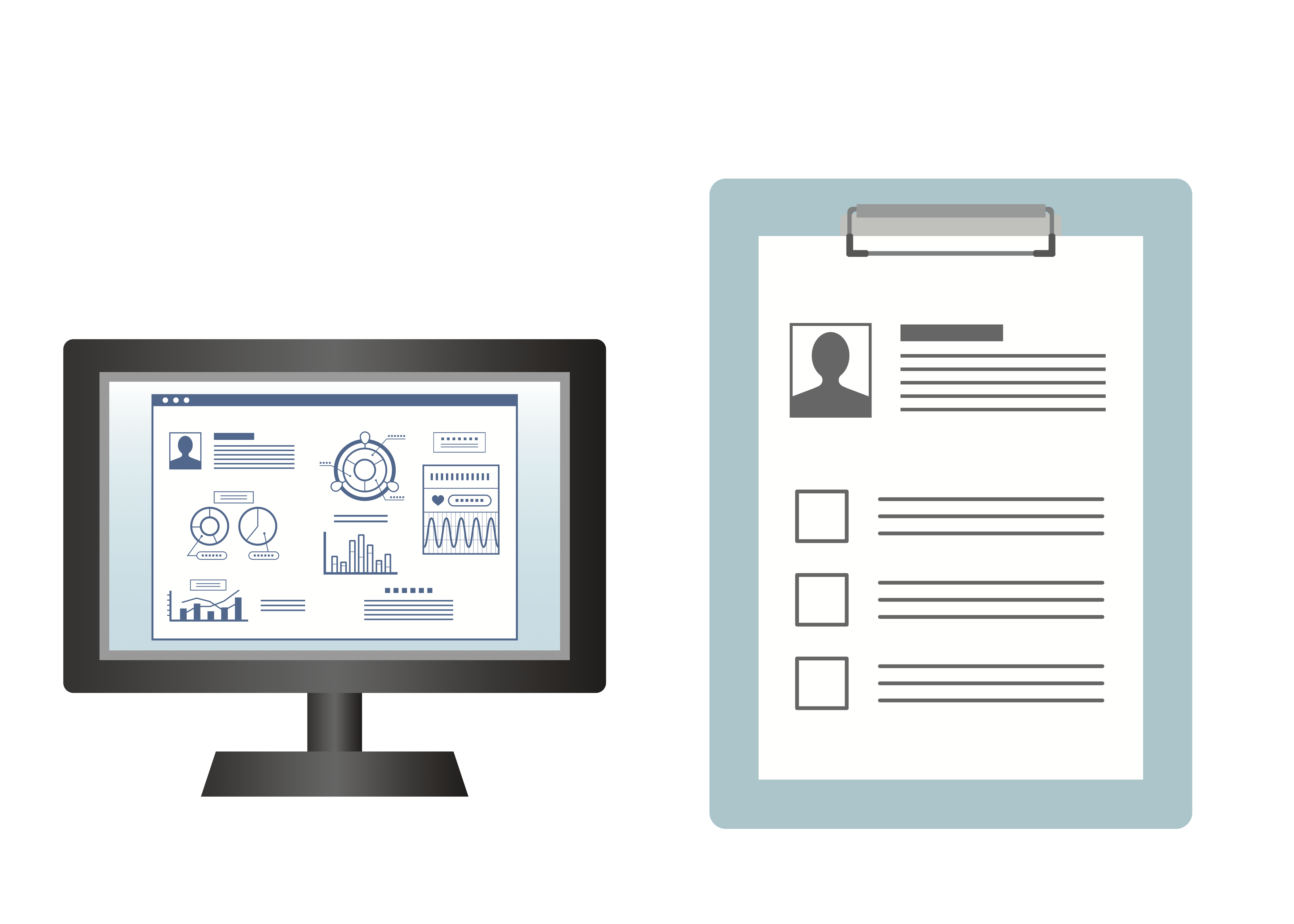Paper vs Electronic Medical Records

Have you ever gone to a doctor’s appointment and found yourself detailing your health condition while your doctor scribbles on a piece of paper? Perhaps you’ve found yourself explaining your concerns while your doctor is typing into their computer. Both of those scenarios involve medical records; the first is a paper medical record while the latter is an electronic medical record (EMR), also often referred to as an electronic health record (EHR).
Paper records require additional personnel to handle paper files and organize countless documents. An electronic medical record platform requires no physical storage space, less personnel and less of your time.
Although physicians may experience some initial costs as they implement electronic medical records, the costs of records over time will decrease significantly.
Medical practices store paper medical records in large warehouses that are filled with paper. These paper records take up space and are less environmentally friendly. Paper records also tend to deteriorate over time. A cloud based EHR eliminates the need for all of those extra materials and space.
Physicians who keep medical records in a warehouse need to request them to be faxed, scanned or mailed which is a time-consuming process. With electronic medical records, medical professionals have access to the data they need instantly. Mobile EMRs like DrChrono provide the added benefit of taking those records on the go instead of being tied to a computer. Time is critical in medical settings, and lowering a practice’s administrative burden is crucial to saving time.
Many medical professionals keep just one copy of a medical record on paper, so the loss of a single record could mean that it’s gone forever. Paper records are also vulnerable to freak incidents such as break in, losing it from a staff member or natural disasters such as a fire or flood.
Everyone has come across a joke online about a doctor’s illegible penmanship, but different handwriting can present a problem when others need to read a paper record. Sometimes providers run out of space on their paper and have to squeeze information into the margins. Electronic medical records give you the space you need to document all of the important information from a medical encounter.
The medical EHR industry is constantly evolving to create more customizable, practical software for providers. Telehealth has become an important part of a complete EHR. Whether you’re searching for the best EHR for a solo practice or a larger operation, consider learning how DrChrono EHR can streamline these administrative workflows for your practice.